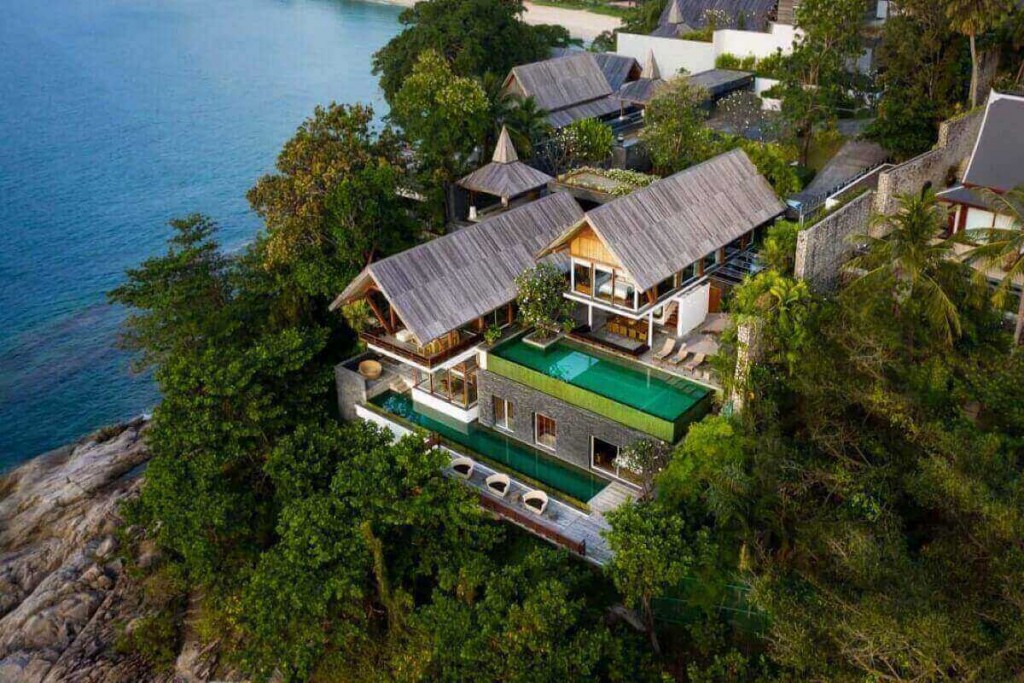As the sun sets over the Andaman Sea, painting the sky with hues of orange and pink, Emma and James stand on the terrace of their newly purchased villa on the island of Phuket. With a glass of fine wine, they take in the panoramic ocean views, the lush greenery surrounding their property, and the soothing sound of waves crashing onto the shore. For this British couple, owning a luxury property in Thailand was a distant dream, a vision fueled by countless vacations in Southeast Asia. Today, that dream has become a reality. Yet, their journey to owning a slice of paradise wasn’t just about finding the perfect home; it was about navigating a dynamic and often complex real estate market that has been capturing the attention of global investors for years. Luxury property for sale in Thailand
Thailand’s Luxury Property Market: A Snapshot
Thailand, known for its stunning landscapes, rich cultural heritage, and warm hospitality, has become a magnet for those seeking luxury properties. From opulent beachside villas in Phuket and Koh Samui to high-rise penthouses in Bangkok, Thailand offers a diverse range of high-end real estate options that cater to international tastes.
According to a report by CBRE Thailand, the demand for luxury properties in Thailand has steadily increased over the past decade, with particular interest from Chinese, Russian, and European buyers (CBRE Thailand, 2023). The luxury market segment, valued at USD 1 million and above, has become a significant part of Thailand’s overall real estate market, contributing to approximately 15% of the total property market value (Knight Frank Thailand, 2023).
Why Thailand? Key Drivers of Luxury Property Demand
Several factors drive the appeal of Thailand’s luxury property market:
- Favorable Climate and Lifestyle: Thailand offers an appealing lifestyle characterized by a warm climate year-round, beautiful beaches, and a relaxed yet vibrant culture. For many foreign buyers, Thailand is not just a holiday destination but a place to invest in a second home or retirement haven.
- Investment Potential: Thailand’s real estate market has shown resilience despite global economic uncertainties. A robust tourism industry and a steady flow of expatriates ensures a strong rental market, offering attractive yields. Luxury properties in prime locations like Bangkok, Phuket, and Koh Samui can yield rental returns of up to 6-8% per annum (Savills Thailand, 2023).
- Government Policies and Foreign Ownership: While foreigners cannot own land in Thailand, they can own condominium units outright as long as foreign ownership does not exceed 49% of the total area of the condominium. Additionally, Thailand offers long-term leasehold agreements for villa purchases, making it accessible for foreigners to own luxury properties.
- Competitive Prices: Thailand offers relatively lower prices per square meter compared to other popular luxury destinations, such as Singapore or Hong Kong. In Bangkok, for instance, luxury condos are priced between $5,000 to USD 7,000 per square meter, which is considerably more affordable than properties in other global cities (JLL Thailand, 2023).
Current Trends in the Luxury Property Market
The luxury property market in Thailand has witnessed several key trends in recent years:
- Growing Demand for Beachfront Properties: Beachfront villas like Phuket and Koh Samui continue to be highly sought after. These properties offer breathtaking views, direct access to the sea, and privacy and exclusivity. The average price for a luxury villa in these prime locations ranges from $1.5 million to USD 5 million (CBRE Thailand, 2023).
- Urban Sophistication in Bangkok: Bangkok remains a hotspot for luxury property investments, particularly in the central business district and riverside areas. High-rise condos with state-of-the-art facilities, including infinity pools, fitness centers, and concierge services, are in high demand. In Bangkok’s luxury segment, penthouses and condominiums can command prices upwards of USD 10,000 per square meter (Knight Frank Thailand, 2023).
- Sustainable and Smart Homes: There’s a rising interest in properties that offer sustainable living features, such as energy-efficient systems, smart home technology, and eco-friendly materials. Developers are increasingly incorporating these features to cater to environmentally conscious buyers.
Challenges in the Luxury Property Market
While the market for luxury properties in Thailand is attractive, it is not without its challenges:
- Regulatory Framework: The legal landscape for foreign property ownership can be complex. Although foreigners can own condominium units and lease land, navigating the legal requirements and restrictions can be daunting without proper guidance.
- Market Volatility and Economic Factors: The luxury property market can be sensitive to economic downturns, both globally and domestically. For instance, during the COVID-19 pandemic, Thailand’s real estate market experienced a slowdown due to reduced international travel and economic uncertainties. However, the market shows signs of recovery as global travel resumes (Savills Thailand, 2023).
- Infrastructure Development: While Thailand has made significant strides in infrastructure development, particularly in urban areas, some luxury properties in more remote or less developed locations may face challenges related to accessibility and local amenities.
The Future Outlook: What to Expect
Looking ahead, the outlook for Thailand’s luxury property market appears promising:
- Continued Demand from Foreign Investors: With ongoing global interest and favorable currency exchange rates, particularly for buyers from Europe and the United States, Thailand will likely continue to attract foreign investors looking for luxury real estate opportunities.
- Infrastructure Enhancements: Planned infrastructure developments, such as the high-speed rail projects connecting major cities and the expansion of airports in Phuket and Chiang Mai, are expected to enhance accessibility and further boost demand for luxury properties in these regions.
- Evolving Buyer Preferences: As more buyers seek properties that offer both luxury, sustainability, and smart living features, developers will likely continue to innovate and provide high-end properties that align with these evolving preferences.
Conclusion
Emma and James’s journey into Thailand’s luxury property market was as much about embracing a new lifestyle as it was about making a smart investment. Their story reflects a broader trend: a growing number of international buyers seeking the unique blend of tropical allure, modern amenities, and investment potential that Thailand’s luxury real estate market offers.
Whether you’re looking to purchase a beachfront villa in Phuket, a chic penthouse in Bangkok, or a serene retreat in Chiang Mai, Thailand’s luxury property market presents diverse options. However, understanding the market dynamics, navigating the legal landscape, and recognizing the potential challenges are crucial for any prospective buyer.
As Thailand continues to grow and develop, its luxury property market will remain a key player in the global real estate landscape, attracting those who seek both opulence and opportunity in one of the world’s most captivating destinations.






